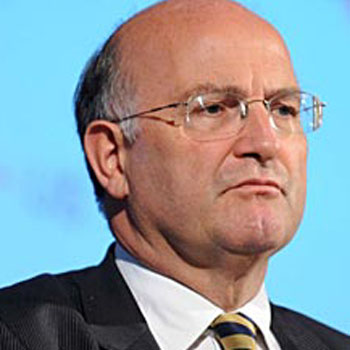Roger is managing director of Capital Economics, which he founded in 1999, a Specialist Adviser to the House of Commons Treasury Committee and an Honorary Fellow of the Institute of Actuaries; he was formerly Group Chief Economist of HSBC. In 2012, Roger and a team from Capital Economics won the Wolfson Prize, the second biggest prize in Economics after the Nobel.
An alumni of Oxford University, he lectured at St Anne's College, Oxford in Economics before moving to the City where he has spent much of his career.
He has written numerous articles and books on monetary economics, the latest of which was The Trouble with Markets, an analysis of the deep causes of the recent financial crisis and threats to capitalism arising from it. Like his previous book, Money for Nothing which correctly anticipated the financial crisis, it has been widely acclaimed. Previous tomes include the best seller, The Death of Inflation, and translated into nine languages. He is also joint author of the Theory of Money, and author of Index-Linked Gilts.
Roger's best selling book is called “The AI Economy – Work, Wealth and Welfare in the Robot Age”. It is about the economic implications of Artificial Intelligence and addresses the concerns of both businesses and ordinary people about how the future will look as robots and AI proliferate. In contrast to much of the literature on robots and AI, this book is profoundly optimistic about what they imply for the human condition.
Roger is a regular pundit on television and radio and is also a columnist for The Daily Telegraph for which he was named Economics Commentator of the year in 2012 at The Comment Awards.
A much sought after performer at conferences and business gatherings around the world, he has a long and distinguished record of successful forecasting of major events and market movements, often in contrast to the prevailing orthodoxy of the time, including:
- Perceiving that real estate markets were caught up in a bubble.
- Foreseeing the serious impact of the credit crunch.
- Forecasting the collapse of the dotcom boom.
- Seeing that the UK would be forced out of the ERM in 1992 and, in contrast to the official Treasury line and the views of most forecasters, predicting that inflation and interest rates would fall.
- Forecasting that rising inflation would prompt UK interest rates to be raised to 15% in 1989.
- Realising that during the hard monetarist phase in 1979-81, inflation was going to fall sharply despite the fact the broad money supply was growing rapidly.
- And most famously, predicting as early as October 1990, that the financial climate in Europe and North America would be transformed by sustained low inflation and maintaining this view even though many people in the market dismissed The Death of Inflation as a joke

